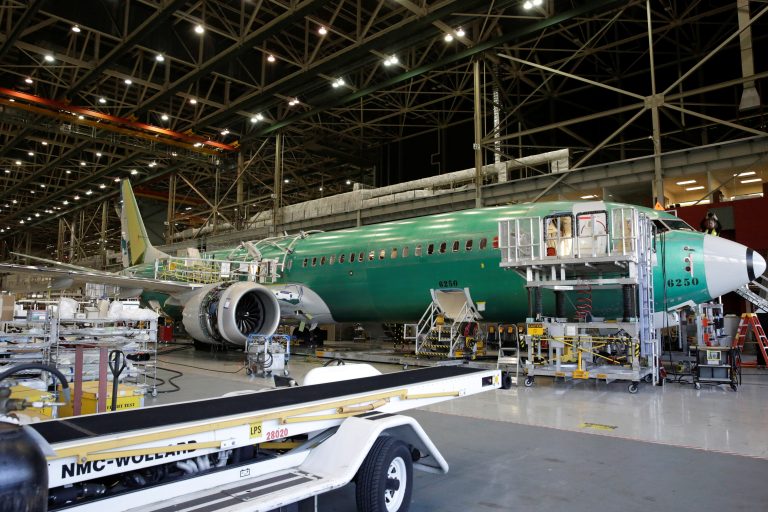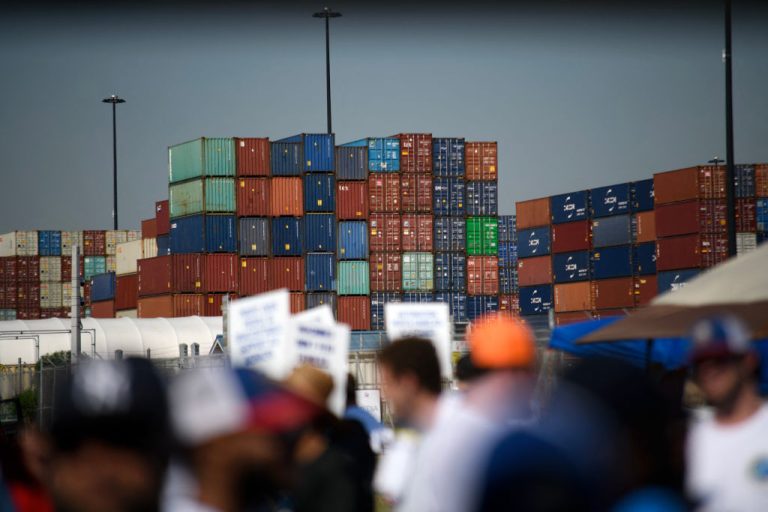A former senior Boeing manager has come out with some sobering advice concerning Boeing’s line of MAX jet liners; don’t fly on them.
In a recent conversation with the Los Angeles Times, Ed Pierson, a one-time senior Boeing manager who says he worked in the factory where the troubled aircraft are built, said that he would not fly on the aircraft.
“I would absolutely not fly a MAX airplane,” he said. “I’ve worked in the factory where they were built, and I saw the pressure employees were under to rush the planes out the door. I tried to get them to shut down before the first crash.”
Pierson’s warnings were echoed by another former Boeing employee, engineer Joe Jacobsen, who told the Los Angeles Times, “I would tell my family to avoid the MAX. I would tell everyone, really.”
Pierson believes airlines were too quick to return the line of aircraft to service following a serious incident earlier in January which resulted in a number of MAX 9 jets being grounded. In total, 171 jets were impacted, resulting in hundreds of flights being canceled. The majority of these jets, that are in service in the U.S., are operated by Alaska Airlines and United Airlines.
Success
You are now signed up for our newsletter
Success
Check your email to complete sign up
The planes were temporarily grounded by the Federal Aviation Administration (FAA) after a section of the fuselage on one of the jets blew out mid-flight.
Central to the incident was a “plug” that was installed over an unused emergency exit, which failed just seven minutes after takeoff, leaving a gaping hole in the plane.
None of the 171 passengers or six crew members on board the Alaska Airlines flight 1282 were injured but the rapid decompression of the cabin caused the emergency oxygen masks to drop from the ceiling.
According to the LA Times, Boeing had no comment concerning Pierson’s remarks.
READ MORE:
- FAA Grounds 171 Boeing MAX 9 Aircraft Following Serious Mid-Flight Incident
- Portland Physics Teacher Finds Missing Door From Alaska Airlines Boeing 737 MAX 9 in Backyard
- China Considers Renewing Boeing 737 MAX Purchases Amid High-Stakes APEC Summit
Boeing playing ‘whack-a-mole’
Boeing’s line of MAX jets have had a troubled past, with two of its MAX 8 jets crashing, one in 2018 and another in 2019, claiming the lives of 346 people.
Last week, the FAA cleared the line of MAX jets to fly following a mandated inspection and maintenance process.
Jacobsen, who is also a former FAA engineer, said that Boeing is taking a questionable approach to addressing issues with the aircraft.
“Instead of fixing one problem at a time and then waiting for the next one, fix all of them,” he said, comparing Boeing’s approach to fixing the aircraft to a game of whack-a-mole. He said it’s only a matter of time before another issue surfaces. “Maybe it’s next week. Maybe it’s a month,” he said.
Days after the Alaska Airlines incident, Boeing President and CEO David Calhoun admitted that “quality escape” had occurred at the company, and told employees, “This event can never happen again.”
In an email to employees he said that “scrutiny” due to the incident, “makes it absolutely clear that we have more work to do [to] strengthen our safety and quality processes.”
Jacobsen accuses the company of “trying to maximize profits” while the quality of the aircraft drops.
“For the last 20 years, they’ve gone in this continual direction of towards financial engineering instead of technical engineering,” he said.
READ MORE:
- What Are the Aims of the CCP’s Constant Naval Presence in the Taiwan Strait?
- The Collapse of Evergrande: A Symbol of China’s Deepening Property Crisis, Flailing Economy
- US Navy Sends First Warship Through Taiwan Strait Post-Election
‘Must never happen again’
In a Jan. 24 statement, the FAA said that the “Boeing 737-9 MAX incident must never happen again,” adding that the administration has announced “additional actions” to ensure aircraft safety.
“The FAA today informed Boeing it will not grant any production expansion of the MAX, including the 737-9 MAX.”
“This action comes on top of the FAA’s investigation and ramped up oversight of Boeing and its suppliers.”
“We grounded the Boeing 737-9 MAX within hours of the incident over Portland and made clear this aircraft would not go back into service until it was safe,” FAA Administrator Mike Whitaker said. “The exhaustive, enhanced review our team completed after several weeks of information gathering gives me and the FAA confidence to proceed to the inspection and maintenance phase.
“However, let me be clear: This won’t be back to business as usual for Boeing. We will not agree to any request from Boeing for an expansion in production or approve additional production lines for the 737 MAX until we are satisfied that the quality control issues uncovered during this process are resolved,” he added.
In early 2023, the FAA convened 24 experts to review Boeing’s safety management processes and safety culture and a report is expected to be submitted within the coming weeks.
On Jan. 30, Boeing shareholders filed a class action suit against the company, alleging Boeing prioritized profit over safety and misled them about its commitment to producing safe aircraft.
The company’s share price plummeted 18.9 percent between January 5 and 25.







